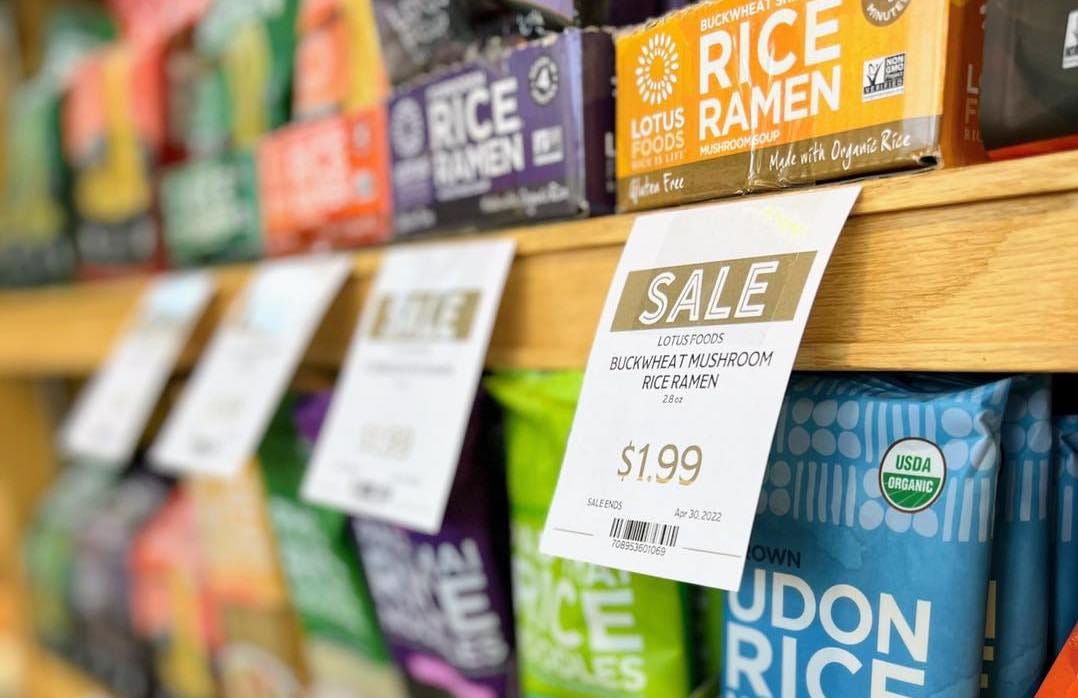With New Backers (Owners?) Lotus Foods Enters New Stage of Growth
After thirty years, Lotus Foods is ready for its next phase of growth, and with a $22.5 million investment from Grounded Capital, they now have the cash to make it happen. "This helps us really scale the impact that we can have as a company," CEO Andrew Burke told me.
Terms of the deal weren't disclosed, but Burke shared that the investment is a mix of primary and secondary capital, offering early investors some liquidity. Co-founders Caryl Levine and Ken Lee were the majority shareholders prior to the deal, but it remains unclear if they still are, as Burke declined to comment.
The deal is the culmination a plan that started with Burke being hired as President in 2019 to help Lee and Levine "chart the waters for how to go forward," he said. Burke was promoted to CEO in 2023, and though the two co-founders remain very actively involved in the business, it’s a different relationship now.
“We've been working [on this deal] for more than three years.” Burke said. “It's [Grounded Capital’s] long term perspective that I think makes this right.”
But Lotus Foods isn't just about products; it's about a mission to promote sustainable and ethical rice production, improve the livelihoods of small farmers, and reduce agriculture's environmental impact. So Grounded Capital’s own mission-focused investment thesis was key to the deal, with Burke stating that supporting Lotus’ goals was a “non-negotiable” in finding a partner.
Plenty of investors rave about the importance of mission, only to weaken these efforts post-deal. But Burke said the questions investors asked made it clear who was really all in.
“Once you get into the back and forth and you hear the questions that are asked [by potential investors], you then understand, ‘Okay, what's the real underlying thing that they're looking for?’ And you can kind of start weeding out the right partners,” Burke said. “At the end of the day, [an investor can say] a lot of nice buzzwords, but it's when you sit down and you see…what they want to get down to brass tacks on, you pretty quickly understand, ‘okay, this is really where their priority is.’”
Burke declined to comment if the brand rejected offers with a higher valuation or larger check size from less mission-driven entities.
So, what's Lotus' own priority? In one word: Growth. While this will include debuting new products (though the company already has 40 SKUs) and "reinventing" current offerings, the team will largely focus on expanding retail distribution beyond its current 9,000 store count. Conventional retail and mass are of particular interest, Burke said. (Though if anyone at Costco is reading this, PLEASE bring back the large Lotus Foods bag of rice. It’s been gone for years, and yet I check every time I shop in hopes it has yet again returned.)
Burke acknowledged Lotus is still a premium-priced product in a commodity category but said there is potential to lower prices as the company grows. The rice noodles and ramen, he said, have been performing particularly well in conventional retail—perhaps due to the rise of more premium instant noodle options from players like Immi, Omsom, Ocean’s Halo, and Momofuku.
“[We want to] identify new consumers who are open to the proposition that we put forward in the rice and noodles that we go to market with, but maybe they don't shop in Whole Foods,” Burke said “And [we plan to] identify those channels, identify those customers, and then really reach out to them and start a conversation with them.



